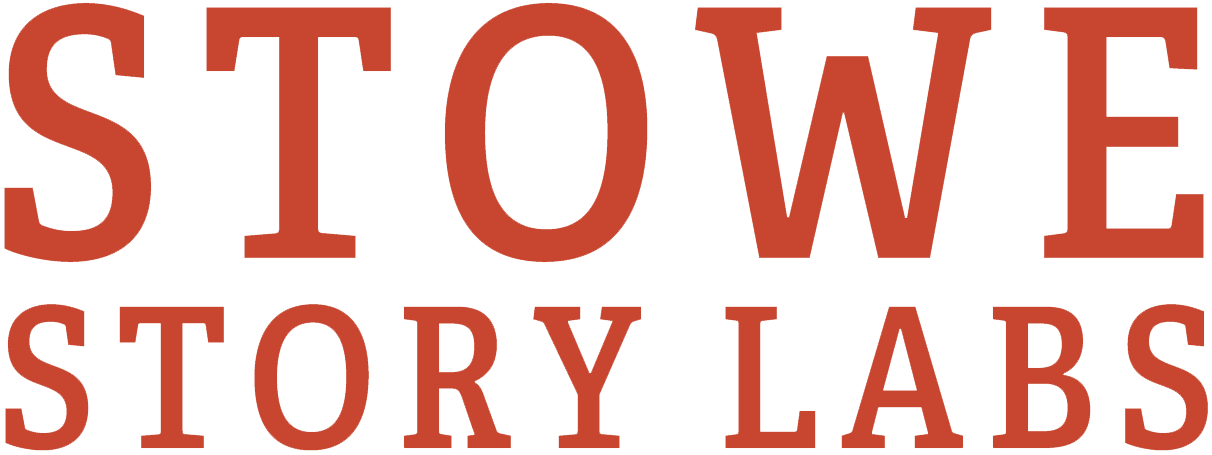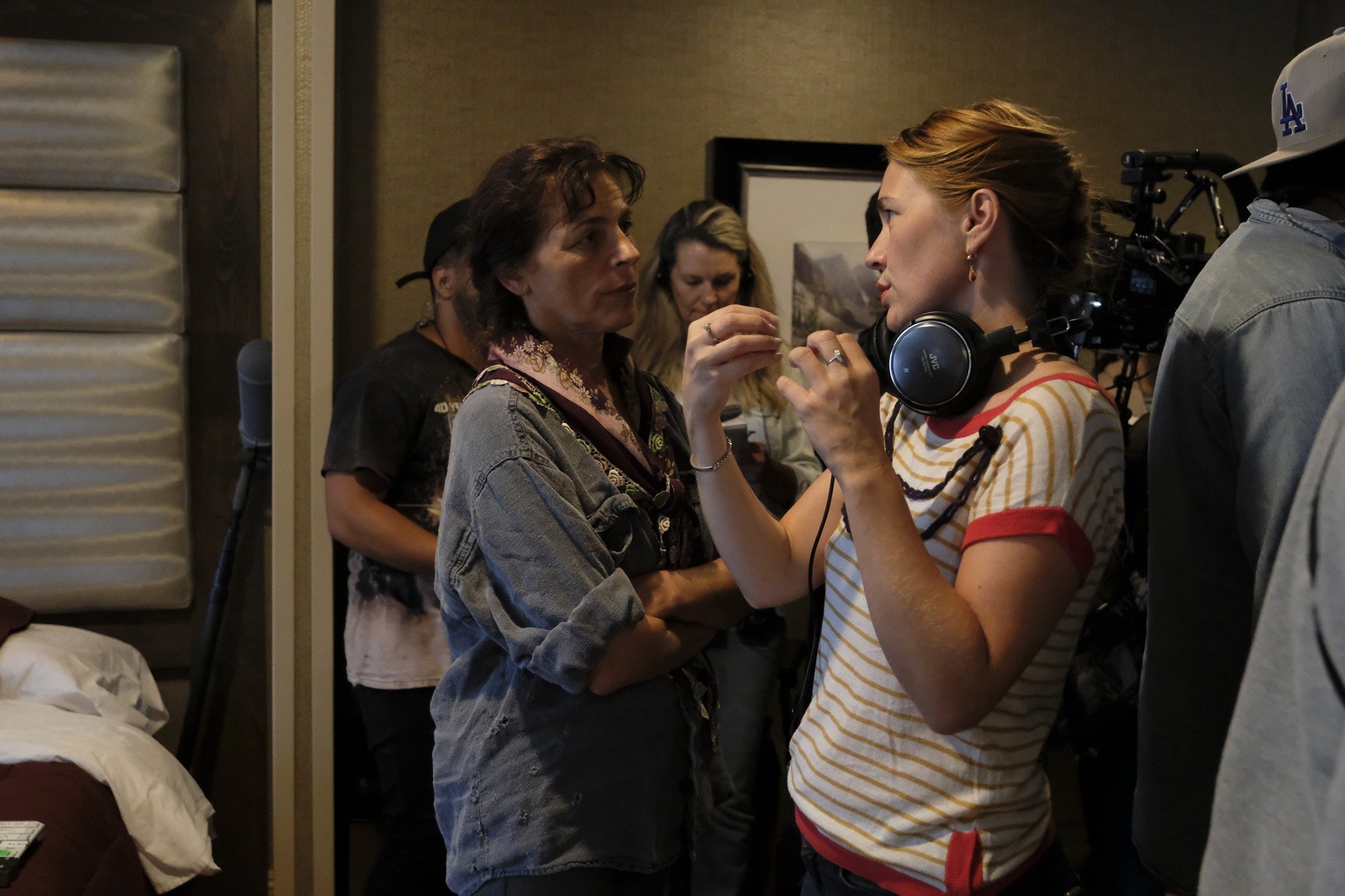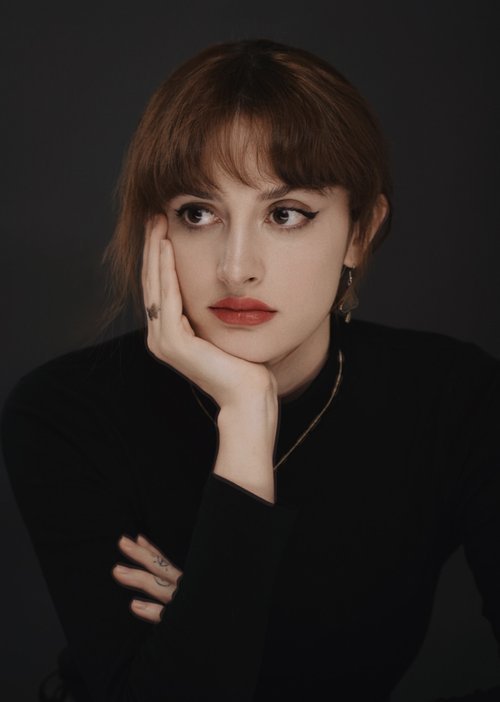Sabina Vajrača Profile
Interview by Marian D. Cook
Sabina Vajrača, writer-director and Stowe Story Labs alum
“I always say that I'm like a sapling. I was just starting to emerge and become a tree, and then I was ripped out and put in a pot. And that pot has been carried around to all these places around the world, and I'm yet to be taken out of it and put back into the ground,” said Sabina Vajrača, writer-director and Stowe Story Labs alum, describing her upbringing. But it extends beyond mere roots: it embodies her sense of community and worldview, and has manifested itself in all of her films from narratives to documentaries.
By the age of 14, she was a war Bosnian War refugee, uprooted from her hometown in Bosnia and Herzegovina to live first in Croatia and eventually the United States.
Assimilation meant survival, so Sabina did what she had to do. Through it all, she never abandoned her integrity, imaginative flair, and unwavering love for Bosnia—tenets of her filmmaking and which started in her solitude and displacement in Croatia.
Sabina (r) on set of Variables
Sabina explained, “My dad loves movies. My mom loves music. So theater wasn't a thing, but I stumbled across a theater company in Croatia and it's only because they were putting up a play based on my favorite book at the time that I thought, ‘Ok, I'll go see this.’ By the end, I said, ‘This is it. This is unbelievable.’ And it helped that they really embraced me and didn't care that I was a refugee, Bosnian, or Muslim. That’s something that’s very true for all theater nerds and why theater has remained my first love.”
Fast forward and Sabina is now residing in the United States, writing, directing and producing plays at The Lincoln Center, SITI Company, and Shakespeare & Company. Then, the opportunity arises to go back to Bosnia after so many years and reclaim the property that was stolen from them during the Bosnian War.
Sabina directing actress Mira Furlan on set of Variables
Sabina explains, “Well, I thought, I'll use this as an opportunity to go and shoot this. I was really interested in recording something of Bosnia because people always comment on how stunning and beautiful it is, and I could use it as a video behind my theater piece. But then some friends said, ‘We think there’s actually a film here.’ And I thought, ‘Well, no, I don't do film. I do theater. I made that decision. But then one thing led to another and suddenly I was in Bosnia shooting a documentary, not really knowing how to make a documentary.”
Despite being her first foray into film, it was a triumph and helped Sabina discover her love for film: “there's something about the permanence of film that I missed in theater—like I would put in all this work and create something that I think is beautiful, but no one would ever see it again.” Sabina continues, “And while there is something philosophically beautiful about that, the artist within me wanted something more permanent.”
Back to Bosnia (2005) went on to screen at over 30 film festivals worldwide, including premiering at the AFI Fest, winning Director’s Choice at the Crossroads Film Festival, and being featured in the top 100 of the greatest films directed by women by the BBC. The success of it spurred Sabina to delve into different genres of media, like a music video for Nouvelle Vague's “Bela Lugosi's Dead” and commercials for ESPN and the IFP Media Center.
Today, aside from the success of Back to Bosnia, she also has Variables, Voodoo Macbeth, and most recently Sevap/Mitzvah to boast. Variables (2019), which is also a return to her hometown but set during the Bosnian War, was a recipient of the Alfred P. Sloan Grant, DGA Student Awards Grand Prize, HUMANITAS Prize, BAFTA Student Award, Student Oscars nominee, and was showcased on Stowe’s Alumni Short Film Channel during its inaugural year. Voodoo Macbeth (2022) was a Warner Bros./USC feature period drama she co-directed.
And now Sabina is riding her biggest wave yet, with the Oscar-qualifying Sevap/Mitzvah (2023), having been considered for the Academy's Best Live Action Short Film category and winning the esteemed 2023 Humanitas Prize for Short Film. Based on a true story from World War II in Bosnia, the film follows the remarkable actions of Zejneba Hardaga, a Muslim woman, who saved her Jewish friend Rifka Kabiljo and her family during the Nazi occupation, and 50 years later, Rifka returned the favor by airlifting them out of the Bosnian War. The title refers to doing a good deed without expecting anything in return.
Culturally Muslim, when Sabina first read about this story, it was important for her because it transcended all the stories she grew up hearing about Muslim and Jewish relations. “It was important for me to tell this story now and put it out in the world when there’s this idea that Muslims and Jews hate each other. And in my experience, that's not the truth at all. I really wanted this story to be out there to remind people to look beyond any sort of labels that we put on each other in order to tribalize, and when you do you’ll realize the person that you're looking at is just a human being.”
Sabina on set of Sevap/Mitzvah
And at a time when divisiveness is so prevalent, for Sabina, community is more important than ever. Not only is it important to her as a refugee, but a filmmaker, too. She’s a member and alum of Film Fatales, BAFTA, and Stowe Story Labs, and she credits organizations like these as crucial in helping her navigate the challenges of the film industry, while also providing solace, confidence, and family.
Sabina explains, “I had an enormous family back in Bosnia, but now it’s only my parents and I who are in America. And so I don't really have a strong community as other people may have from their childhood, teenage years, or family in general—or maybe they don't need it as much as I do. But for me, it's very, very important, and these groups make me feel heard, seen, and supported.”
As to what’s next, Sabina is currently doing castings For Buraz, a feature film she wrote and will be directing about a successful Wall Street banker trying to solve his brother’s murder, set against the backdrop of the Bosnian community in Florida. You can donate and read all about it here.
Interview by Marian D. Cook
Marian D. Cook is a former journalist, a 2023 graduate of USC's MFA program in film and TV production, and a former Academic Intern and then Operations and Marketing professional at Stowe Story Labs. She graduated from Spring Hill College in 2019, Summa Cum Laude and with honors, with a BA in Journalism.
She's currently focused her talents on producing and editing strong, female-led stories and those that uplift her Latinx community. Her latest projects include Bad Hombrewood, a short documentary she produced and was directed by Guillermo Casarin, about Latinx representation in Hollywood, starring Phil Lord, Guillermo Del Toro, Lee Unkrich, Melissa Fumero, and a range of Latinx talent that demonstrate the beauty and diversity of the Latinx community, that won Best Student Documentary at the American Pavilion at the 2022 Cannes International Film Festival, was nominated for the 42nd College Television Awards, and has been selected for over 40 official film festivals across the globe including Santa Barbara and the Cleveland International Film Festival. She also produced Backlog, directed by Jacqueline E. Rosenthal and based on a true story, about one woman's story to end the national rape kit backlog, which was a Best Student Short Audience Award Winner at the Cleveland International Film Festival and was also an official selection of the American Pavilion's Emerging Filmmaker Showcase at the 2023 Cannes Film Festival.
Marian also just finished editing Renacer, directed by Jenniffer Gonzalez, about a Latina's journey post-abortion, which was a recipient of the The Annenberg Inclusion Initiative's AI2 Reproductive Rights Accelerator Award. Currently, she is editing Ximena Davis' Eclipse Chasers. You can learn more here.






